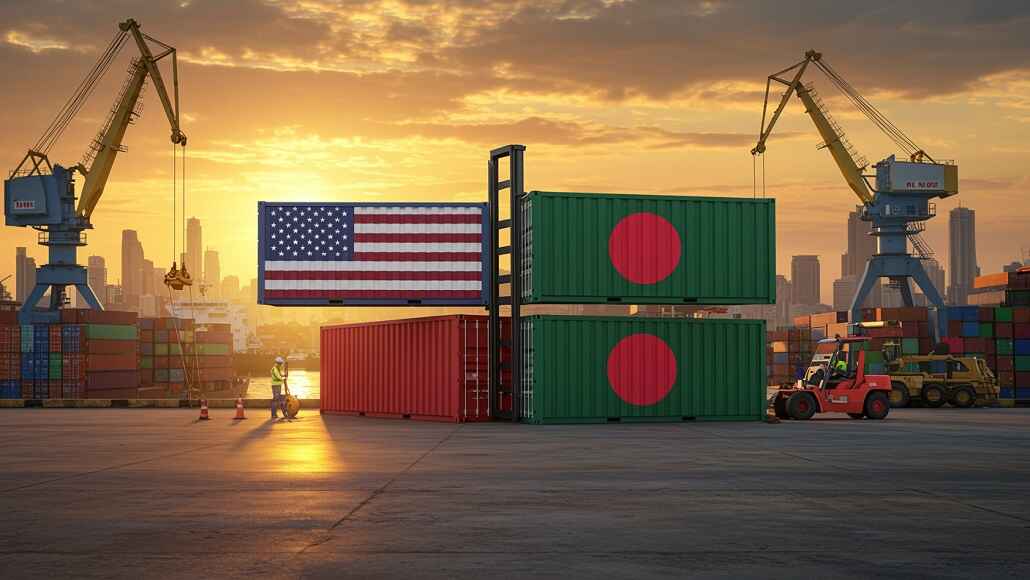Bangladesh, recognized as the second-largest exporter of ready-made garments globally after China, has proposed to buy a variety of US agricultural products, including cotton, on a duty-free basis to circumvent potential reciprocal tariffs from the US. This information was revealed in a letter from Bangladesh’s Chief Adviser, Muhammad Yunus, to US President Donald Trump.
In his correspondence, Yunus requested a three-month delay on the implementation of the reciprocal tariff measures affecting Bangladeshi exports to the US. He suggested several initiatives, such as facilitating the introduction of Elon Musk’s Starlink in Bangladesh and allowing US companies access to the country’s advanced technology sectors, including civil aviation and defense. Similar requests for deals have also been made by textile manufacturing nations like Vietnam and Cambodia.
This initiative is driven by worries that reciprocal tariffs have a disproportionate impact on smaller economies, particularly because of how the US calculates these tariffs. Bangladesh is facing a significant 37 percent reciprocal tariff, which poses a considerable challenge to its textile sector—the nation’s leading source of foreign exchange.
India, which exports over $2 billion worth of cotton and yarn to Bangladesh each year, has vested interests in the Bangladeshi textile market, as numerous Indian textile companies run factories in the country, benefiting from the favorable duty status granted to Least Developed Countries (LDCs) by the European Union. “I write to assure you that we in Bangladesh will take all necessary actions to fully support your trade agenda. Shortly after your inauguration, I sent my High Representative to Washington DC to indicate our intent to substantially increase American exports to the fast-growing Bangladesh market of 170 million people,” stated Yunus in his letter.
Currently, Bangladesh is in the process of recovering from a political and economic crisis experienced last year. High inflation has diminished Dhaka’s US dollar reserves, restricting the nation’s capacity to import essential goods, including agricultural products, iron, steel, electricity, and plastics from India. In the past financial year, Bangladesh’s economic activity has decelerated, evidenced by an 8 percent decrease in petroleum product imports from India in June compared to May of the previous year.
“To increase the speed to market of US cotton, we are finalizing a dedicated bonded warehousing facility in Bangladesh where these goods will enjoy duty-free access. You will also be pleased to know that Bangladesh has the lowest tariff on most US exports in South Asia. We remain committed to zero tariffs on key American agricultural commodities, as well as on scrap metals,” he further noted. Yunus also mentioned that Bangladesh is working on a 50 percent reduction in tariffs on significant US export products, including gas turbines, semiconductors, and medical equipment.
“We are also removing an array of non-tariff barriers to US exports. This includes eliminating certain testing requirements, rationalizing packaging, labeling, and certification processes, and introducing trade facilitation measures such as simplified customs procedures and standards,” he added.
Additionally, he pointed out that the country is in the process of taking the necessary steps to facilitate the launch of Starlink in Bangladesh, which would open up new opportunities for US businesses in advanced sectors like civil aviation and defense. The developments in these areas reflect the ongoing importance of Bangladesh US Trade Relations. “We will complete the ongoing and planned actions within the next quarter. Please allow us the necessary time to implement this important work smoothly, in consultation with US officials,” Yunus concluded, highlighting the significance of strengthening Bangladesh US Trade Relations.

































